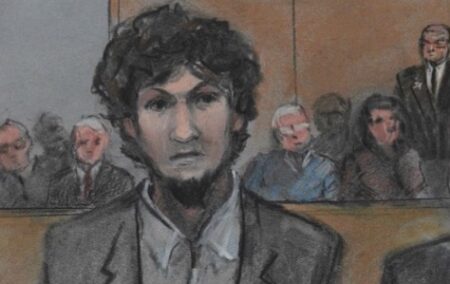On Friday the United States Supreme Court reinstated the death sentence for Dzhokhar Tsarnaev, convicted for the 2013 Boston Marathon bombing that killed three people and wounded hundreds more.
An appeals court set aside Tsarnaev’s sentence in 2020 when it found that the trial judge erred in excluding mitigating evidence that suggested the defendant’s older brother, Tamerlan, was more culpable for the attack, and limiting the questions defence attorneys could ask prospective jurors about their exposure to news accounts of the crime.
By a 6-3 vote, the Supreme Court found neither issue undermined the jury’s decision to recommend death.
Justice Stephen Breyer, who dissented, wrote that Tsarnaev should have been allowed to introduce even tangential evidence suggesting that his older brother’s influence mitigated his culpability for the crime.
It is unclear when or if Tsarnaev will be executed. President Biden campaigned on abolishing capital punishment, and Attorney General Merrick Garland has imposed a moratorium on federal executions while a review of death-penalty procedures is conducted.
The Tsarnaev brothers, Chechen immigrants from Kyrgyzstan who had consumed al Qaeda propaganda online, built bombs from pressure cookers, filled them with nails and other shrapnel, and placed them close to the marathon’s finish line near Boston’s Copley Square.
The explosions injured and maimed hundreds; two women and an 8-year-old boy died.
The brothers then went on a crime spree that included the murder of a MIT campus police officer. Police found the brothers, leading to a violent confrontation in which Tamerlan died. Dzhokhar fled but was captured the next day.
Tsarnaev was convicted of multiple crimes by a federal court in Boston. Upon the jury’s recommendation, the judge sentenced him to death.
[Image: Tsarnaev is shown in a courtroom sketch after he is sentenced REUTERS/Jane Flavell Collins]

